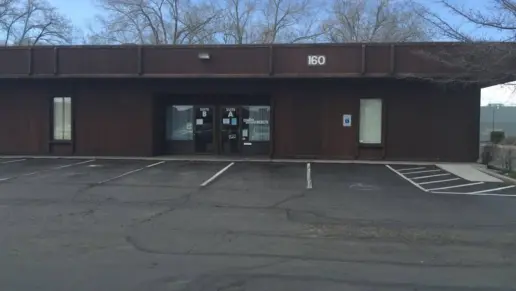I was treated for non epeleptic seizures. With a workbook, individual counseling, and the support of friends I not only have had no seizures in 5 months but I have gotten rid of panic attacks. It was a lot of work but worth it. The counselor guided and challenged me, gave m ...
About Stacie Mathewson Behavioral Health & Addiction Institute
Stacie Mathewson Behavioral Health & Addiction Institute provides you with compassionate specialized care for substance abuse and mental health treatment. They have a team of experienced healthcare professionals dedicated to supporting your recovery journey, including board certified psychiatrists, psychologists, social workers, counselors, and nurses. Your path to recovery begins with an initial comprehensive assessment that defines your customized treatment plan.
Your plan may include psychological and psychiatric assessments, personalized mental health care, and evidence-based individual, couples, family, and group counseling. Evidence-based treatments may include cognitive behavioral therapy (CBT) , motivational therapy (MI), and dialectical behavior therapy (DBT). They also offer medication management and treatment for mental health conditions and substance use disorders. They offer specialty outpatient programs (OP) for adolescents, adults, and first responders.
The adolescent program provides transformative care for teens in an intensive outpatient program. Your teenager is provided with targeted support during which they can continue their educational and family commitments. The intensive outpatient program (IOP) provides individualized care that focuses on sustainable recovery. The adult programs provide care three days a week for five weeks. Treatment is individualized to your needs after an assessment by a qualified clinician.
I really like how they have a first responder outpatient program. It addresses the unique needs of people who put others’ lives first. They understand the high stress nature of emergency response work and are committed to providing you with treatment tailored to your life choices. Their dedicated mental health care includes treatment for substance use disorders, mental health, trauma, and post-traumatic stress disorder.
They also offer medication assisted treatment (MAT) and medication management to manage your withdrawal. This is provided alongside coordinated evidence-based addiction counseling.
They accept payment from most major insurance providers but do not work with Medicare Advantage plans.
Latest Reviews
Rehab Score
Accepted Insurance
Other Forms of Payment
Private insurance refers to any kind of healthcare coverage that isn't from the state or federal government. This includes individual and family plans offered by an employer or purchased from the Insurance Marketplace. Every plan will have different requirements and out of pocket costs so be sure to get the full details before you start treatment.
Self-pay involves paying for treatment out of your own pocket. You can use savings or credit, get a personal loan, or receive help from family and friends to fund your treatment. If you don't have insurance or your insurance plan doesn't cover a specific program, self-pay can help ensure you still get the care you need.
Financial aid can take many forms. Centers may have grants or scholarships available to clients who meet eligibility requirements. Programs that receive SAMHSA grants may have financial aid available for those who need treatment as well. Grants and scholarships can help you pai for treatment without having to repay.
Medicare is a federal program that provides health insurance for those 65 and older. It also serves people under 65 with chronic and disabling health challenges. To use Medicare for addiction treatment you need to find a program that accepts Medicare and is in network with your plan. Out of pocket costs and preauthorization requirements vary, so always check with your provider.
Medicaid is a state based program that helps lower-income individuals and families pay for healthcare. Medicaid covers addiction treatment so those enrolled can use their coverage to pay for rehab. When a program accepts Medicaid the client often pays very little or nothing out of their own pocket.
Military members, veterans, and eligible dependents have access to specific insurance programs that help them get the care they need. TRICARE and VA insurance can help you access low cost or no cost addiction and mental health treatment. Programs that accept military insurance often have targeted treatment focused on the unique challenges military members, veterans, and their families face.
Addiction Treatments
Levels of Care
Treatments
Many of those suffering from addiction also suffer from mental or emotional illnesses like schizophrenia, bipolar disorder, depression, or anxiety disorders. Rehab and other substance abuse facilities treating those with a dual diagnosis or co-occurring disorder administer psychiatric treatment to address the person's mental health issue in addition to drug and alcohol rehabilitation.
Mental health rehabs focus on helping individuals recover from mental illnesses like bipolar disorder, clinical depression, anxiety disorders, schizophrenia, and more. Mental health professionals at these facilities are trained to understand and treat mental health issues, both in individual and group settings.
Programs



Clinical Services
Cognitive Behavioral Therapy (CBT) is a therapy modality that focuses on the relationship between one's thoughts, feelings, and behaviors. It is used to establish and allow for healthy responses to thoughts and feelings (instead of unhealthy responses, like using drugs or alcohol). CBT has been proven effective for recovering addicts of all kinds, and is used to strengthen a patient's own self-awareness and ability to self-regulate. CBT allows individuals to monitor their own emotional state, become more adept at communicating with others, and manage stress without needing to engage in substance abuse.
Dialectical Behavior Therapy (DBT) is a modified form of Cognitive Behavioral Therapy (CBT), a treatment designed to help people understand and ultimately affect the relationship between their thoughts, feelings, and behaviors. DBT is often used for individuals who struggle with self-harm behaviors, such as self-mutilation (cutting) and suicidal thoughts, urges, or attempts. It has been proven clinically effective for those who struggle with out-of-control emotions and mental health illnesses like Borderline Personality Disorder.
Group therapy is any therapeutic work that happens in a group (not one-on-one). There are a number of different group therapy modalities, including support groups, experiential therapy, psycho-education, and more. Group therapy involves treatment as well as processing interaction between group members.
In individual therapy, a patient meets one-on-one with a trained psychologist or counselor. Therapy is a pivotal part of effective substance abuse treatment, as it often covers root causes of addiction, including challenges faced by the patient in their social, family, and work/school life.
Whether a marriage or other committed relationship, an intimate partnership is one of the most important aspects of a person's life. Drug and alcohol addiction affects both members of a couple in deep and meaningful ways, as does rehab and recovery. Couples therapy and other couples-focused treatment programs are significant parts of exploring triggers of addiction, as well as learning how to build healthy patterns to support ongoing sobriety.
Research clearly demonstrates that recovery is far more successful and sustainable when loved ones like family members participate in rehab and substance abuse treatment. Genetic factors may be at play when it comes to drug and alcohol addiction, as well as mental health issues. Family dynamics often play a critical role in addiction triggers, and if properly educated, family members can be a strong source of support when it comes to rehabilitation.
Contact Information
85 Kirman Ave
Ste 100-200
Reno, NV 89502







